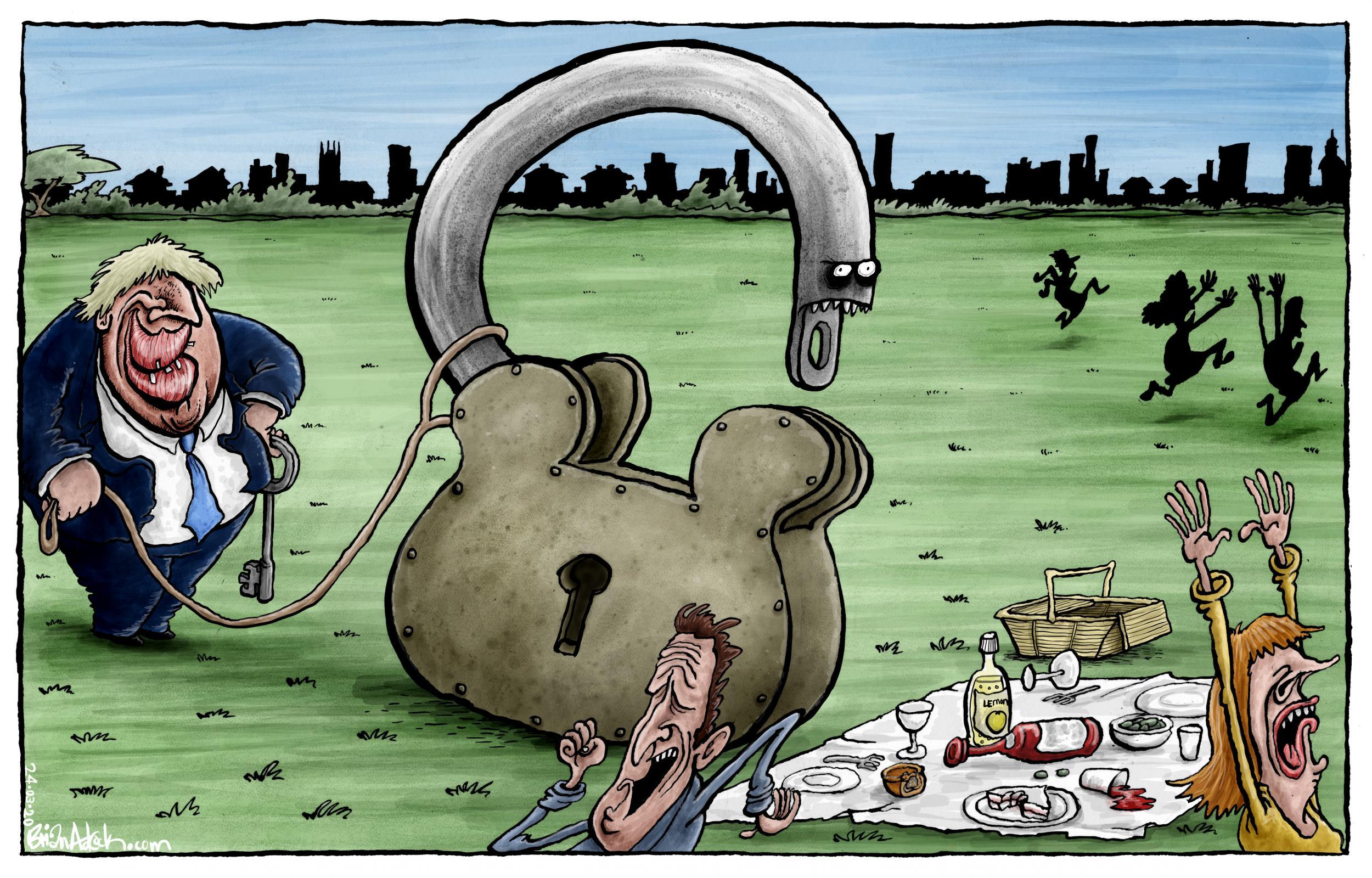Boris Johnson’s response to coronavirus has been too little, too late
Editorial: It is not so long ago that the prime minister was joshing about shaking hands with people. He is finally starting to take the pandemic seriously – but it’s already outrun him

It is not possible to know what is going through the prime minister’s mind during his Covid-19 press conferences, but a degree of trepidation is etched into those usually jovial features.
There is cause for concern. The rate of spread of the coronavirus, the number of cases and fatalities are all accelerating. Britain, by common consent, is already on the steep part of the upward curve of infection – and many say, on the same trajectory as Italy. In other words, the harrowing scenes we witness now in Italy’s hospitals could soon be replicated in Britain. By this time next month, the NHS could also be overwhelmed by the demand.
That is a terrifying prospect, and one Boris Johnson must be dreading. It now seems unlikely that the NHS will be able to secure all the necessary resources, especially respirators, in time. At that point, the theoretical questions now being posed about the British response to the pandemic will grow acute and immediate. It will be a moment of political reckoning.
It is, though, not too early now to ask whether the government’s early response was sufficiently robust and rapid. Is it too late to “flatten the curve”? It is not so long ago, for example, that the prime minister was joshing about shaking hands with people and only a matter of days since he suggested he would try to see his mother on Mother’s Day.
The prime minister’s approach throughout has been characterised by a resistance to put statutory limits on individual and corporate freedoms. Johnson was too slow to accept the inevitable after the publication of the Imperial College research on the likely course of casualties under the previous, more relaxed approach, and the new policy of suppression was adopted very belatedly. Only now have stricter rules been applied to public places, and the emergency powers legislation been presented to parliament.
The provisional verdict, then, is that ministers did too little, too late. Certainly there are mitigating factors. The government overestimated how far the public would obey its guidance Yet the government was also inconsistent with that guidance, which often shifted in a matter of days. The government’s defence is that it was guided by the chief medical officer and the chief scientific adviser – “the science”. If so, then there are legitimate questions about how that science was understood by those in government, as there remain serious questions as to the role of unqualified figures such as Dominic Cummings in deeply misguided strategies such as “herd immunity” – questions that will need answering sooner rather than later.
Join our commenting forum
Join thought-provoking conversations, follow other Independent readers and see their replies
Comments